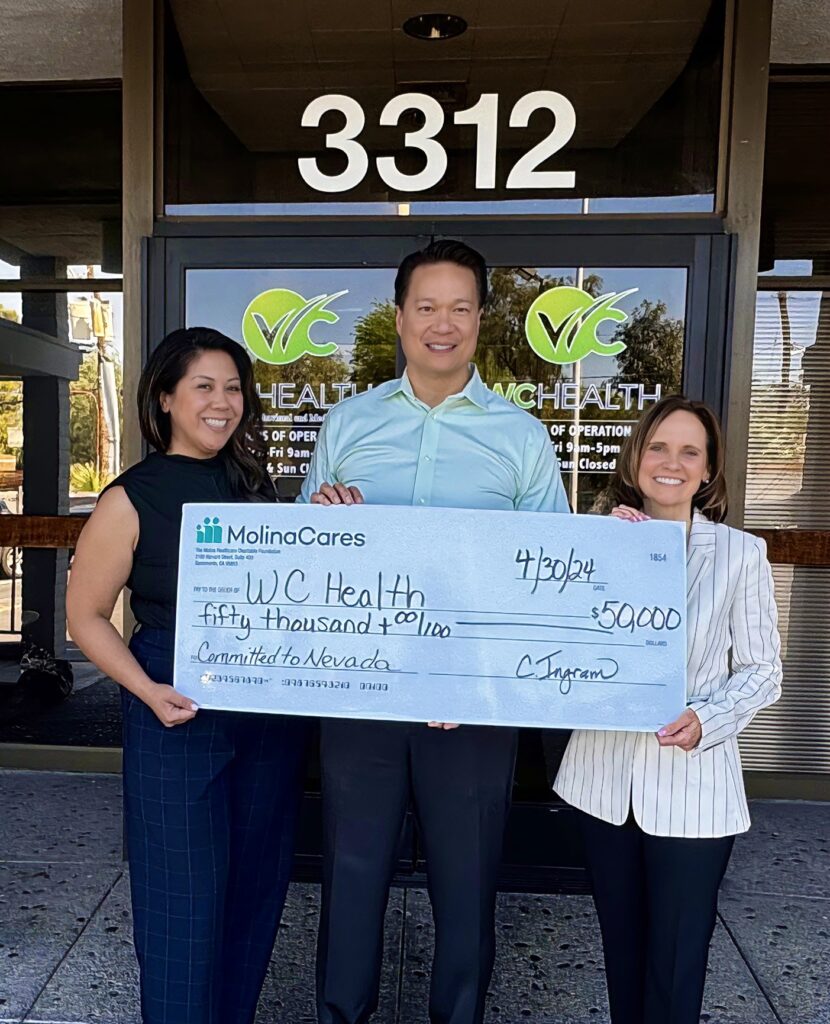Molina Healthcare of Nevada Presents WC Health with $50,000 Donation to Increase Access to Behavioral Health Care in the Silver State

Molina Healthcare of Nevada (“Molina”) recently awarded $50,000 to WC Health in support of its behavioral health program. This is part of Molina’s ongoing commitment to providing Nevadans with access to quality health care throughout the state.
The grant will support individuals in need of crisis stabilization services and facilitate care. It will also help enhance services to members by improving access to de-escalation services, implementing ways to address gaps in care, and improving access to mental health services by increasing the capacity of providers.
According to a recent report, the biggest increases in adults with frequent mental distress forgoing treatment due to the cost were in Nevada.
WC Health’s clinics and support/resource centers are located across the state, serving thousands of individuals with behavioral health services such as psychiatry, psychotherapy, primary care, case management, pharmacy services, and housing programs.
“We rely on programs like this to further expand our reach, and we appreciate this funding to aid in addressing gaps in services,” said Marce Casal, CEO of WC Health. “WC Health wishes to thank Molina Healthcare of Nevada for its generous donation as we work together towards solutions.”
This funding also represents a partnership and commitment to providing services for Nevadans experiencing homelessness and underserved communities in Nevada.
“Individuals experiencing homelessness and other under-resourced populations often suffer from reoccurring mental health and other issues at higher rates than the general population, and they often experience greater access-to-care barriers,” said Nima Alinejad, chief medical officer at Molina Healthcare of Nevada. “We are Committed to Nevada, and grateful for WC Health’s integrated approach to serving individuals within their primary care clinics, which may be the only source for accessing the care they need.”